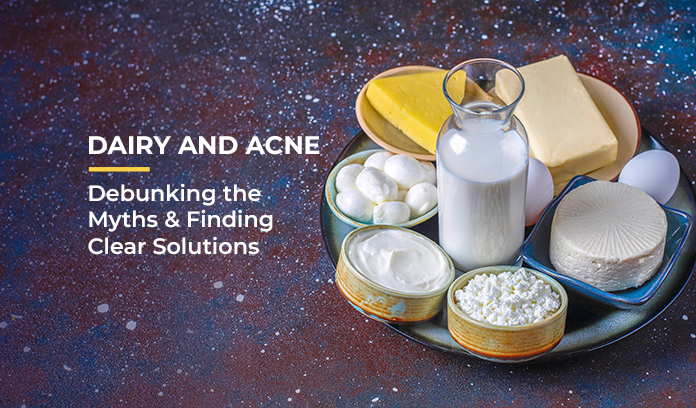In recent years, there has been a rampant debate over the impact of dairy consumption on acne breakouts.
In this blog, we attempt to delve further into the science behind dairy acne, segregate fact from fiction, and provide real-time solutions to maintain clear skin.
Get ready to debunk some myths and uncover the truth about dairy and acne.
The Dairy-Acne Relationship: Fact or Fiction?
The question of whether dairy triggers acne breakouts has been a hot topic of discussion for quite some time. Some studies suggest an association between the two, whereas scientific findings have been inconclusive.
Factors such as overall diet, hormonal imbalance, and genetics play a significant role in determining the complex relationship between dairy and acne.
While some might experience worsened acne flare-ups due to dairy intake, others might not be affected by the same.
It’s important to approach this topic with a relatively open mind and seek personalized solutions.
Understanding The Mechanism
Elevated hormones, such as insulin growth factor (IGF-1), can stimulate increased oil production, leading to clogged pores and acne breakouts.
Lactose and whey protein in dairy products may trigger inflammation and immune responses that aggravate acne-prone skin.
It’s vital to consider that research is still ongoing in this area, and a solid connection that possibly leads to dairy acne is yet to be established.
Practical tips for managing dairy acne
If you suspect that dairy consumption might be contributing to your acne, it’s time to find a balance that works for you.
Before eliminating dairy from your diet, consider the following tips:
Moderation:
Enjoy dairy products in moderation, being mindful of portion sizes and consumption frequency.
Good-quality options:
Choose organic or hormone-free dairy products as they may be free of potentially problematic hormones.
Dairy alternatives:
To satisfy your dairy cravings, consider opting for almond, soy, or oat milk.
Skincare regimen:
Establish a consistent skincare routine with gentle cleansers, non-comedogenic moisturizers, and acne-combating ingredients like salicylic acid or benzoyl peroxide.
Seek professional help:
Consult a dermatologist or healthcare provider who can offer personalized guidance based on your skin’s needs.
Conclusion
Remember, everyone’s skin is different and has varying underlying causes behind its appearance. While the link between dairy and acne might not be fully realized, making conscious choices can help us navigate this topic better.











